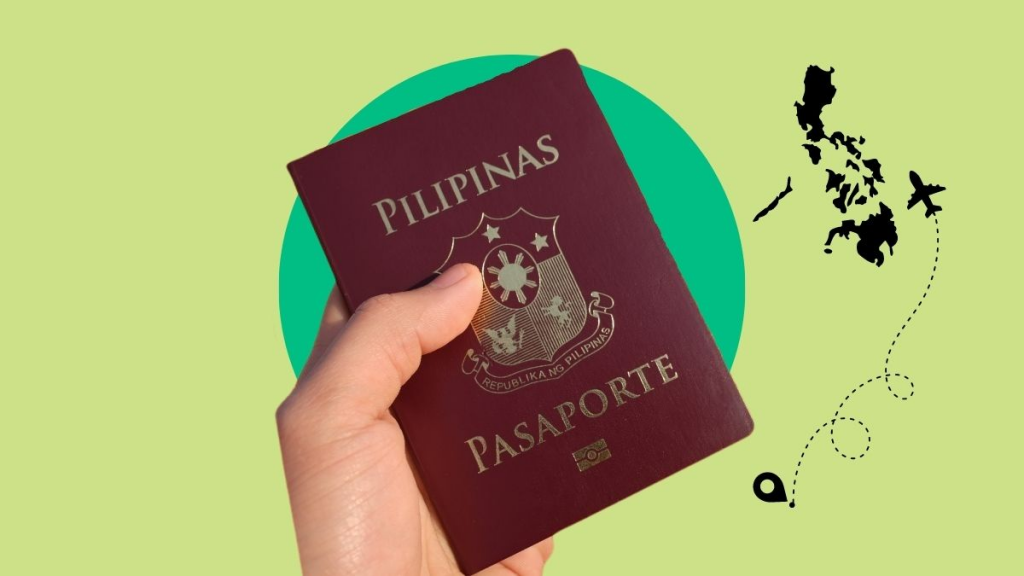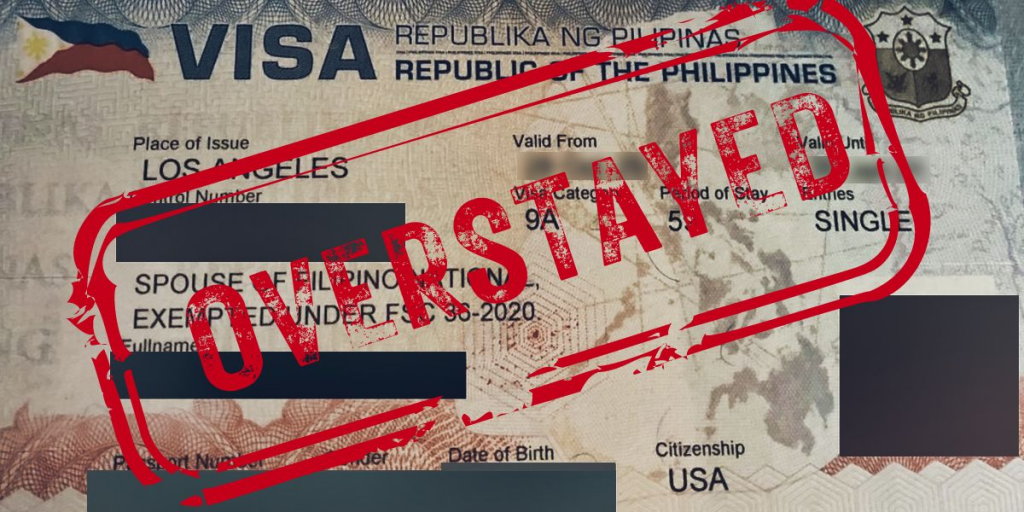According to the Henley Passport Index, the original and authoritative ranking of all the world’s passports, Filipinos rank 75th in the list, which means that Filipino citizens can access 66 countries and regions without a prior visa. These countries contain a list of visa-free countries, Electronic Travel Authorization (eTA) countries and visa-on-arrival countries. However, when they wish to travel to the remaining countries, they must show a prior visa. In this article, we will show a detailed guide on which visa-free countries you can go to in 2024 and some visa requirements you need when traveling to other countries.

The complete list of visa-free countries for Filipinos in 2023
When Philippine passport holders wish to travel to the following countries, they do not need to prepare a prior visa. However, it is important for Filipino passport holders to know the length of stay and permissible purposes for travel in each country. Here you can check the visa-exempt countries or regions below:
- Armenia – 120 days
- Barbados – 90 days
- Bolivia – 90 days
- Brazil – 3 months
- Brunei – 14 days
- Cambodia – 30 days
- Colombia — 90 days upon arrival; can extend another 90 days (180 days total)
- Cook Islands — 31 days
- Costa Rica – 30 days on arrival; can extend another 60 days (90 days total)
- Côte d’Ivoire – 90 days
- Dominica — 21 days
- Fiji — 4 months
- Guinea-Bissau* — 90 days
- Haiti – 3 months
- Hong Kong — days
- Indonesia – 30 days
- Iran* — 30 days
- Israel — 3 months
- Kazakhstan – 30 days
- Kyrgyzstan* — 1 month
- Laos — 30 days
- Macao — 30 days
- Madagascar* — 90 days
- Malawi* – 90 days
- Malaysia – 30 days
- Maldives* — 30 days
- Mauritania* — 90 days
- Mauritius* — 60 days
- Micronesia – 30 days
- Mongolia – 21 days
- Morocco – 90 days
- Mozambique* — 30 days
- Myanmar — 14 days
- Nepal* — 90 days
- Nicaragua* — 90 days
- Niue — 30 days
- Pakistan** — 30 days
- Palau Islands* – 30 days
- Papua New Guinea* — 60 days
- Peru — 183 days
- Rwanda – 90 days
- Samoa* – 60 days
- Senegal — 90 days
- Seychelles* — 3 months
- Singapore — 30 days
- Somalia* — 30 days
- Sri Lanka** — 30 days
- Saint Lucia* – 6 weeks
- Saint Vincent and the Grenadines – 1 month
- Suriname – 90 days
- Taiwan — 14 days
- Tajikistan* — 45 days
- Tanzania* — 3 months
- Thailand — 30 days
- Comoros Islands* — 45 days
- Gambia – 90 days
- Marshall Islands* — 90 days
- Timor-Leste* — 30 days
- Togo* — 7 days
- Trinidad and Tobago* — 1 month
- Tuvalu – 1 month
- Uganda* — 30 days
- Vanuatu — 30 days
- Vietnam – 21 days
It is essential for Philippine passport holders to know if they need a visa for extended stays.
👀 Note:
* means visa on arrival: Filipino visitors can obtain a visa when they arrive in the country. They do not need to apply for a visa in advance.
** means Electronic Travel Authorization (eTA): It is necessary for visa-exempt foreign nationals, which can increase visibility and security.
What documents do Filipino citizens need to bring to visa-exempt countries or regions?
If Philippine citizens visit visa-free countries or regions for different purposes, such as tourism, business and travel. They need to prepare different documents when entering visa-exempt destinations. Here you can check the required documents below:
Tourist
When you want to travel to visa-free places, you must prepare your passport which is valid for at least six (6) months beyond the contemplated period of stay and the valid tickets for your return to the port of origin or next port of destination. In addition, you must show proof of sufficient money for your stay and leave visa-free countries.
Work
If you are staying in a visa-free country for work, you must bring a valid passport with a validity of 6 months. You also need to apply for a work visa and work permit.
Study
If you go to a visa-free country for study, you must take a valid passport and have a study visa to prove your purpose of staying in other countries.
What if I overstay in visa-free countries?
Some visa-free countries, such as Colombia, will allow Philippine citizens to extend their stay in their countries. You can extend it for another 90 days, and in Costa Rica — you can extend it for another 60 days. However, if you extend your stay in visa-free countries, you will receive a warning and may face a fine for every day you overstay. Besides, you will be deported from the country. You may be banned from entering these countries

in the future. Therefore, it is important for you to comply with the length of stay specified with the visa-free and leave the country on time.
Can I travel to visa-free countries if my passport expires soon?
According to the passport rules, you must take a valid passport with at least 6 months of validity when you reach the country. Therefore, you must ensure that your passport has a long validity that allows you to stay in visa-free countries. Otherwise, it is better for you to renew your Philippine passport in advance before you start traveling.
Which countries issue eVisa to Filipino citizens?
Some countries require Philippine citizens to apply for an electronic visa (eVisa) before traveling. An eVisa can be applied for online and can be sent to the applicant’s email. So you need to print it with you, in case they need to check your paper visa. Here you can see the list of countries below:
- Albania
- Antigua and Barbuda
- Bahamas
- Benin
- Bhutan
- Botswana
- Burkina Faso
- Cameroon
- Democratic Republic of the Congo
- Djibouti
- Equatorial Guinea
- Gabon
- Georgia
- Guinea
- India
- Iran
- Kenya
- Lesotho
- Moldova
- Montserrat
- Nigeria
- Papua New Guinea
- Qatar
- Russia
- São Tomé and Príncipe
- Sierra Leone
- South Africa
- South Sudan
- Saint Kitts and Nevis
- Togo
- Uganda
- Uzbekistan
- Zambia
- Zimbabwe
Which countries issue visas on arrival to Filipino citizens?
Of course, some countries will issue visas on arrival for Filipino citizens. This way, Philippine nationals can obtain a visa at the airport or border crossing point. You can check the list below:
- Bahrain
- Burundi
- Cabo Verde
- Comoros
- Ethiopia
- Guinea-Bissau
- Kyrgyzstan
- Madagascar
- Malawi
- Maldives
- Marshall Islands
- Mauritania
- Mauritius
- Mozambique
- Nepal
- Nicaragua
- Palau
- Senegal
- Seychelles
- Somalia
- Sri Lanka
- Saint Lucia
- Tanzania
- Timor-Leste
- Trinidad and Tobago
- Tuvalu
Where can I enter visa-free with an APEC card?
Since the Philippines is a part of the ASEAN agreement, an economic agreement including several Southeast Asian countries joined together to make business deals and traveling easier. The Asia-Pacific Economic Cooperation (APEC) Business Travel Card, a travel document, is issued to countries that belong to the APEC Agreement. Consequently, Filipino citizens can enter other ASEAN countries without a visa for stays of up to 14 days or more, such as Australia, Brunei, Chile, China and Indonesia.

If you hold the APEC card, you can enjoy many benefits, such as:
- You can enter the participating economies without a visa.
- You can take legal business deals in participating economies.
- You can enjoy an accelerated border crossing process when you need to travel between member countries.
- You can get an accelerated visa appointment for countries in transition.
If you wish to apply for the APEC card, you must also meet the following requirements:
Not only representatives of executive positions but also candidates can obtain them. However, each Forum member country is responsible for checking its candidates and will establish additional eligibility criteria for foreigners to obtain the card. Of course, you need to prepare a business travel card application, a certificate of no criminal record and a business record card with information about business activities.
📖 Read Also: The Complete Guide on APEC Card Application
Who does not need a Philippine visa?
Of course, many nationals also come to the Philippines visa-free, such as Brazil, and Israel (up to 59 days). Some countries where citizens can travel to the Philippines for up to 30 days without a visa:
- Andorra
- Angola
- Argentina
- Australia
- Bahamas
- Bahrain
- Barbados
- Belize
- Benin
- Bhutan
- Bolivia
- Botswana
- Brunei
- Burkina Faso
- Burundi
- Cambodia
- Cameroon
- Canada
- Cape Verde
- Central African Republic
- Chad
- Chile
- Colombia
- Comoros
- Republic of the Congo
- Costa Rica
- Cote d’Ivoire
- DR Congo
- Djibouti
- Dominica
- Dominican Republic
- Ecuador
- El Salvador
- Equatorial Guinea
- Eritrea
- Eswatini
- Ethiopia
- Fiji
Conclusion
All in all, it provides Filipino citizens with many opportunities to travel to different countries visa-free. Keep in mind that you need to bring a valid passport with at least 6 months of validity and proof of cost in other countries. The most important thing is that you leave visa-free countries on time to avoid penalties and fines.
📖 Further Readings